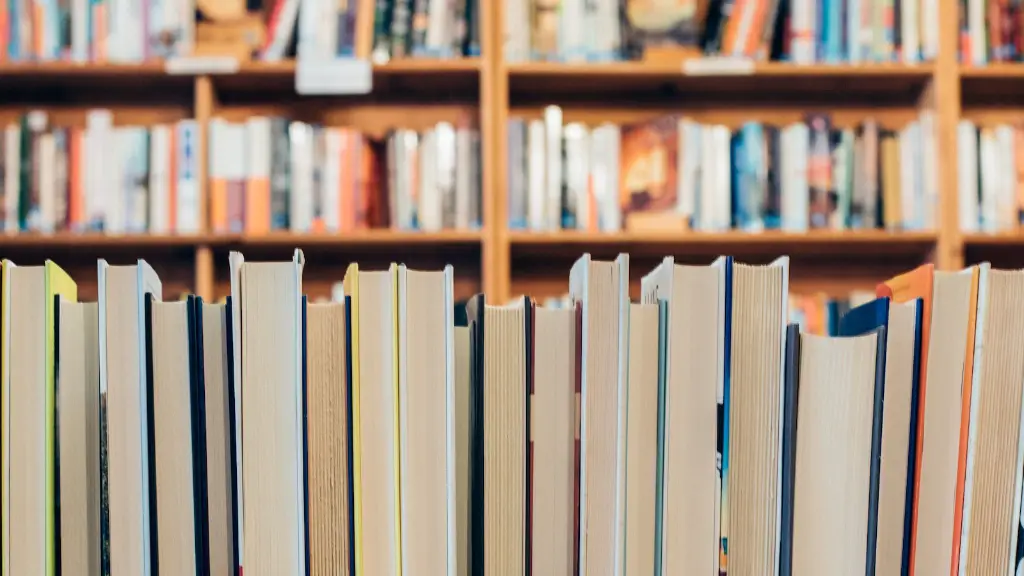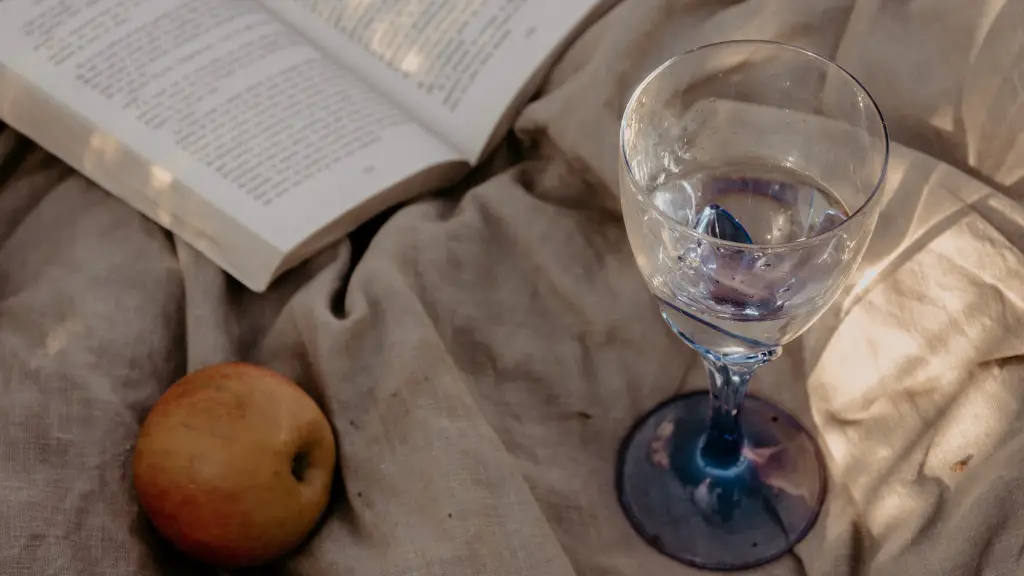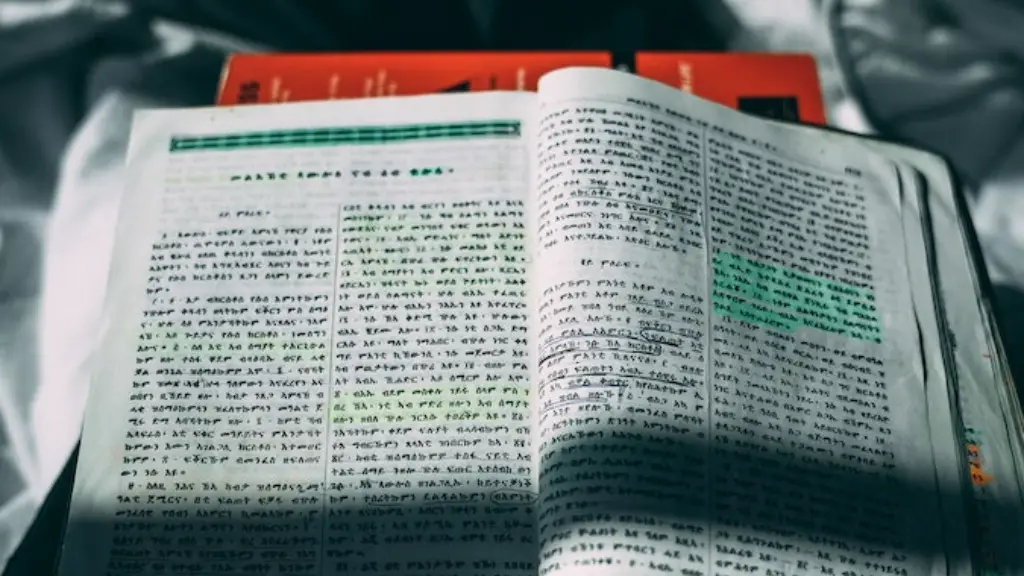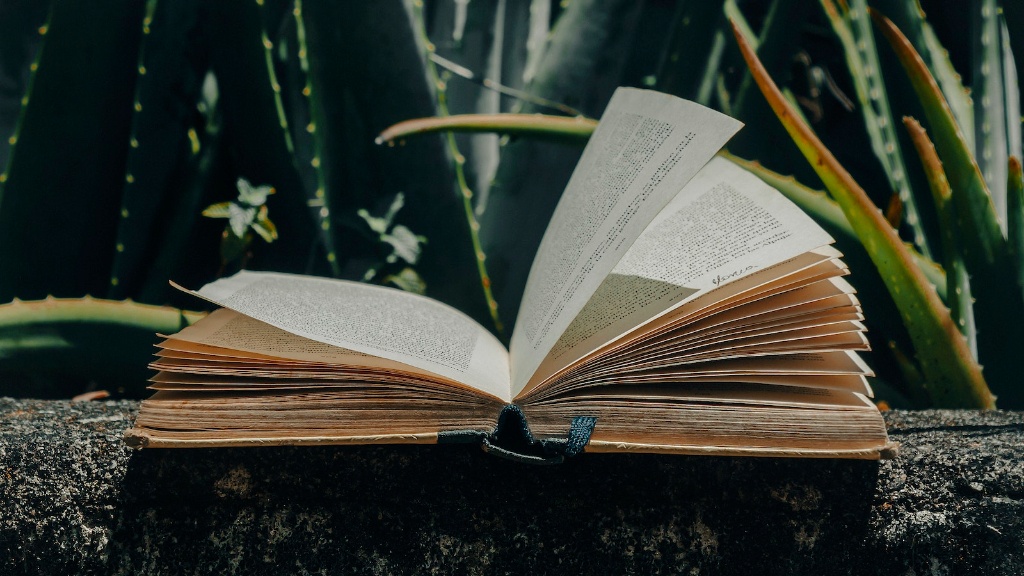Evidence of Poetry as a God-given Gift
Humans around the world have been speaking in poetic forms for centuries, celebrating and grieving events through poems. Poetry has been described as a ‘universal language’, a ‘God-given gift of creative expression’. Some believe that the creative impulse of poetic composition is divinely-inspired, and is given to us by a higher power for us to use.
A close look at ancient cultures suggests that poetry is deeply connected to human religious experience and faith. Ancient texts are filled with poems of a spiritual nature, used to express deep appreciation and awe of the Creator. This is seen in Ancient Sumerian hymns, Judaic psalms and Islamic poetry. Even today, many believers regard poetry as a sacred act, ascribing poetry its own mythology and sacredness.
It’s been argued that if God did not give us the gift of poetry, then it wouldn’t exist. It’s believed that there is a special power in poetic language which carries a special meaning, and spiritual power. Words written in poetry have the power to move us and make us feel things we wouldn’t feel if the same words were put into prose form.
Many believe that poetry should be seen as an answer to an unasked question. The concept of poetry being a god-given gift suggests that poetry is an answer to a Divine presence that is unspoken, yet everpresent. It’s the call of the Divine, asking us to ‘listen in stillness’.
Poetry is often seen as a way of connecting to the Divine. By expressing oneself in poetic form, a person can invoke the power of the Divine, and communicate with a higher power. By speaking in a language of love and awe, one can honour and worship the sacred energy which transcends time, space and language. In this sense, poetry is seen as a sacred gift.
What Does Science Reveal About the Gift of Poetry?
Recent advances in neuroscience have shed light on the power of poetic language. Neuroimaging studies have shown that poetry activates parts of the brain associated with emotion, imagery and language processing. These regions are thought to be related to our ability to imagine, and to make creative connections between ideas.
Recent research has also pointed to the fact that poetry can help us to regulate our emotions and improve our mood. Studies have found that reading and writing poetry can benefit mental health, by releasing dopamine and serotonin (our body’s ‘feel good’ neurotransmitters). This has led to a renewed interest in the idea of poetry as a healing art, and as a way of creating mental balance and peace.
The Power of Poetry In Everyday Life
Poetry has become more popular in recent years, with a huge range of festivals, workshops and communities dedicated to celebrating the art of poetry. This shows the power of poetry in modern life, and how beneficial it can be in bringing people together. People of all backgrounds and beliefs meet to discuss and share their love for the art.
This popularity of poetry also shows how it is used as a powerful tool for self expression and release from life’s struggles. By writing, reading and discussing poetry, people find a way to express and make sense of their hopes, fears, joys and sorrows. Poetry can be a powerful tool for healing and connection, helping us to empathise with ourselves and with others.
What Does the Future Hold For Poetry?
As the popularity of poetry continues to grow, it is likely that it will become an even more widely accepted language of expression. Poetry has become an integral part of many cultures, and it can now be found on television, in film and in music. It is expected that this trend will continue, as more people discover the power of poetry and what it can bring to personal growth and connection.
Through its universal appeal, poetry will continue to attract new audiences and be used as a tool for self expression and healing. It is likely that more people will embrace the potential of poetry, exploring its potential to bring meaning and beauty to their lives.
The Role of Technology in Expanding Poetry’s Reach
Technology can help to make poetry more accessible to a wider audience. Social networks have allowed poems to be shared around the world, allowing even those in remote locations to access and appreciate poetry. This has enabled poets to reach new audiences, and to share their work with people they would otherwise never have reached.
The use of technology also opens up the possibilities of poetry as a way of creating online communities and collaborations. Poets are now able to connect with other writers and share ideas, work together and create new pieces. This further adds to the power of poetry, and to its potential to be shared across the world.
The Impact on Society of Poetry As A God-given Gift
The idea of poetry being a god-given gift has had a profound impact on our society. Poetry has become a powerful force for both healing and social change, transcending the boundaries of cultural, religious and political differences. In an increasingly chaotic and divided world, poetry offers a powerful means of expression, and a way to explore hope and humanity.
This power to bring people together is perhaps the greatest gift of all. Through poetry, we can rediscover our shared humanity and invite meaningful conversations about the world around us. Poetry offers us a unique opportunity to connect with one another and with the divine energy which resides within us all.
How Ignoring Poetry Can Have Negative Consequences
The connection that people have with poetry is often overlooked, and its power underestimated. When we ignore the power of poetry, we deny ourselves the opportunity to experience its healing qualities and the potential it has to bring us closer to the divine. Not taking advantage of these qualities robs us of a valuable source of healing and connection.
Without the opportunity to explore our feelings through poetic expression, people can feel isolated and alone with their emotions. This can prevent people from seeking help and from seeking healing. It is therefore important to recognize and celebrate the power of poetry so that its healing potential can be accessed for everyone.
Poetry As A Lifelong Passion
Poetry has the potential to benefit us for our entire lives, if we approach it with an open heart and a sense of deep appreciation. Many people have found that poetry has given them more meaning and joy in their lives, and led to a deeper connection with the divine. Even those who are not religious often find a spiritual dimension to their craft, and draw inspiration from their word choices.
The power of poetry lies in its ability to transform our perspective, to open our eyes to the beauty in the world and to help us make sense of our feelings. When we carry this knowledge with us throughout our lives, it can stimulate us to reach for deeper understanding, to respond to life’s challenges with compassion, and to create connection and peace.
The Shadow Of Poetry
Despite these positive aspects, there is a darker side to poetry. Poetry, like any other powerful force, can be used to manipulate and control people. There is also a tendency in some communities to see poetry as an exclusive art form, accessible only to those with the right resources and skills. This can alienate those who come from more disadvantaged or marginalised backgrounds, preventing them from accessing the power of this transformative art form.
It is therefore essential to use poetry responsibly, and to ensure that everyone has access to the power of poetic expression and connection. We must be aware of potential pitfalls and ensure that we use poetry in a way that builds understanding and empathy, rather than in a way which perpetuates divisions and further entrenches power disparities.
The Power of Poetry for Growth and Connections
Ultimately, poetry is a powerful tool for personal and spiritual growth, and for forging connection with others and with the Divine. We are blessed with this gift from the Universe and it is our responsibility to explore and use it with respect, compassion and wisdom.
With its potential for transformation, healing, and connection, poetry is an invaluable tool for self-discovery, understanding and appreciation of life. And in its profound beauty, it can inspire us to live more deeply and more joyfully, and to bridge divides.





